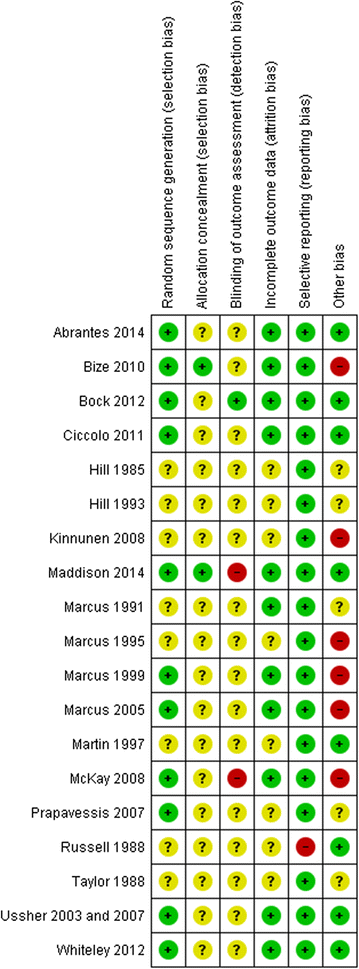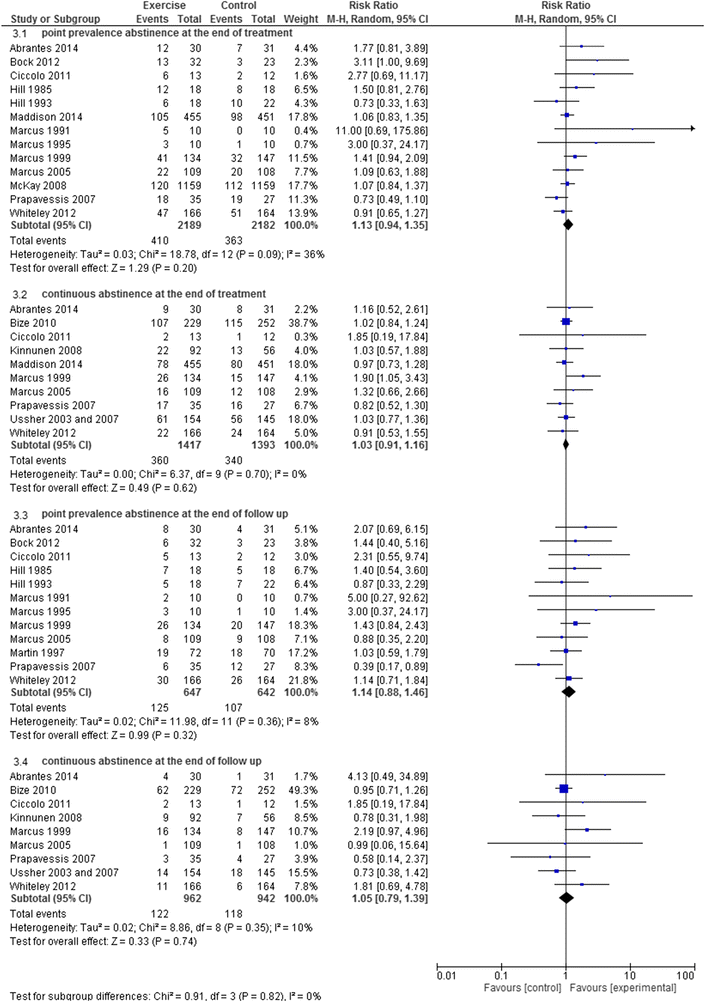Effect of exercise type on smoking cessation: a meta-analysis of randomized controlled trials
- PMID: 28874175
- PMCID: PMC5585974
- DOI: 10.1186/s13104-017-2762-y
Effect of exercise type on smoking cessation: a meta-analysis of randomized controlled trials
Abstract
Background: Exercise is one choice of additional treatment for smoking cessation by relieving nicotine withdrawal symptoms and smoking craving. The possible mechanism of the effect of exercise on relieving nicotine withdrawal symptoms and smoking craving is including affect, biological, and cognitive hypotheses. Evidence suggests that different types of exercise have different effects on these mechanisms. Therefore, type of exercise might have effect on smoking cessation. The purpose of this study is to systematically review randomized controlled trials to gain insight into which types of exercise are effective for smoking cessation.
Methods: Publications were systemically searched up to November 2016 in several databases (PubMed, ScienceDirect, PEDro, Web of Science, Scopus and Cochrane Library), using the following keywords: "physical activity", "exercise", "smoking", "tobacco" and "cigarette". The methodological quality was assessed independently by two authors. Meta-analysis was conducted to examine the effectiveness of the type of exercise on smoking cessation. The quality of the evidence was assessed and rated according to the GRADE approach.
Results: 20 articles on 19 studies were judged to meet the selection criteria (seven low-risk of bias RCTs and 12 high-risk of bias RCTs). The findings revealed low quality evidence for the effectiveness of yoga for smoking cessation at the end of the treatment. The evidence found for no effect of aerobic exercise, resisted exercise, and a combined aerobic and resisted exercise program on smoking cessation was of low to moderate quality. Furthermore, very low to low quality evidence was found for no effect of physical activity on smoking cessation.
Conclusions: There was no effect of aerobic exercise, resisted exercise, physical activity and combined aerobic and resisted exercise on smoking cessation. There was a positive effect on smoking cessation at the end of treatment in the program where yoga plus cognitive-behavioral therapy (CBT) was used. However, which of the two work is still to be studied.
Keywords: Abstinence rate; Smoking; Smoking cessation; Type of exercise.
Figures
References
-
- WHO. Tobacco. 2014. http://www.who.int/mediacentre/factsheets/fs339/en/. Accessed 4 Dec 2014.
-
- CDC Quitting smoking among adults—United States, 2001–2010. MMWR Morb Mortal Wkly Rep. 2011;60(44):1513–1519. - PubMed
Publication types
MeSH terms
LinkOut - more resources
Full Text Sources
Other Literature Sources
Medical





